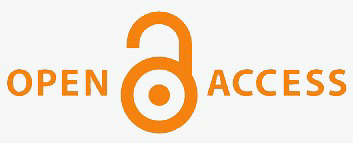MODEL EVALUASI PROGRAM CONTEXT, INPUT, PROCESS, PRODUCT PADA PENDIDIKAN AGAMA KRISTEN SEKOLAH MINGGU DARING DI GPIA KASIH SURGAWI JEMBER
DOI:
https://doi.org/10.55962/metanoia.v4i1.61Kata Kunci:
CIPP Evaluation, Christian Religious Education,, Sunday SchoolAbstrak
In a learning process, the component that determines the success of a process is evaluation. Through evaluation, the community can find out the extent to which the delivery of learning or educational goals or a program can be achieved in accordance with the desired goals. Evaluation is the process of describing, obtaining, and providing useful information for assessing decision alternatives. Evaluation uses information on measurement and assessment results. The CIPP evaluation model is an evaluation model developed by
Stufflebeam which aims to help improve the curriculum, but also to decide whether the program should be discontinued. Through this CIPP evaluation, it can be seen the development of learning outcomes, intelligence, special talents, interests, social relations, attitudes and personality of students or students as well as the success of a program. Christian religious education is an effort to prepare people to believe, understand, and practice Christianity itself. Christian Religious Education, especially in Sunday Schools, also applies a curriculum. The curriculum which is always closely related to evaluation aims to see the effectiveness of the learning received and also input for improvement. The Sunday School, especially GPIA Kasih Heavenly Jember, also applies what is called online learning, learning that is carried out by teachers and children using laptops or computers connected to the internet. In this study, the authors conducted a qualitative descriptive research approach through observation, interviews and documentation naturally. Therefore, the evaluation at the GPIA Kasih Heavenly Jember Sunday School is based on the results that have been described in the curriculum, namely something that is planned as a guide to achieving educational goals and has a very important role function because it does not only involve planning but how strategies and learning methods, media and learning resources as well as the process of implementing plans
that involve two subjects, namely educators as implementers and students who will apply the curriculum concretely in their lives.
File Tambahan
Diterbitkan
Terbitan
Bagian
Lisensi

Artikel ini berlisensiCreative Commons Attribution-ShareAlike 4.0 International License.
pen Access Policy

Jurnal ini menyediakan akses terbuka secara langsung dengan prinsip bahwa penelitian tersedia secara bebas untuk umum demi mendukung pertukaran pengetahuan global yang lebih besar. Artikel yang diterbitkan di Alucio Dei: Jurnal Teologi akan menjadi artikel Akses Terbuka yang didistribusikan di bawah persyaratan dan ketentuan Lisensi Atribusi Creative Commons.
Penulis memegang hak cipta dan memberikan jurnal hak publikasi pertama dengan karya yang dilisensikan secara bersamaan di bawah Attribution 4.0 International (CC BY-SA 4.0) yang memungkinkan orang lain untuk berbagi — menyalin dan mendistribusikan ulang materi dalam media atau format apa pun dan menyesuaikan — remix, ubah, dan membangun materi untuk tujuan apa pun, bahkan secara komersial dengan pengakuan kepenulisan karya dan publikasi awal di jurnal ini.










